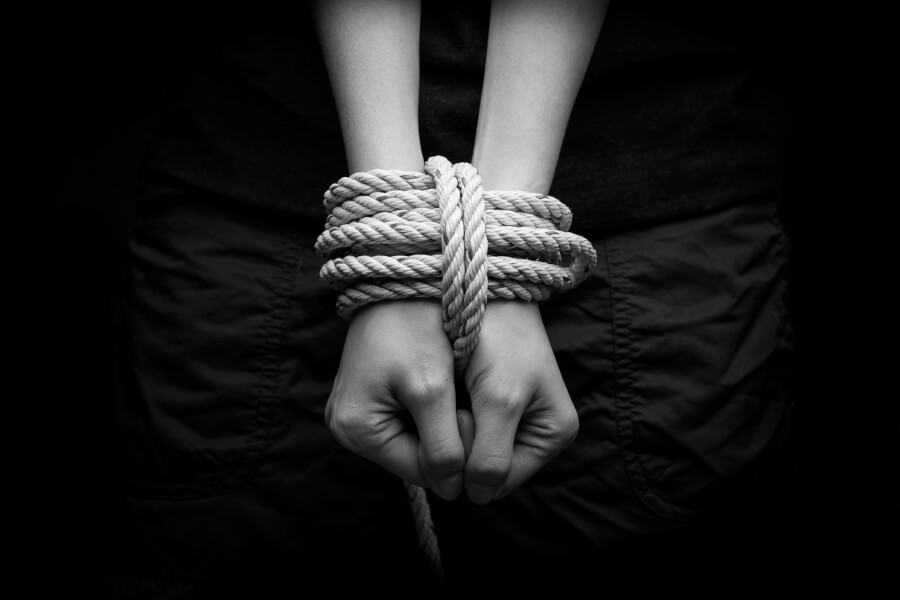 Domestic violence charges are not these exclusively private affairs that you can glide by. For instance, even if there wasn’t a serious injury, even if your partner wants to drop the case, and even if your friend, a real estate lawyer, seems like a good option for representing you, then you’d be in for a surprise. Domestic violence cases can be complex and the Raleigh and Wake County courts can be particularly unforgiving to individuals charged with domestic violence.
Domestic violence charges are not these exclusively private affairs that you can glide by. For instance, even if there wasn’t a serious injury, even if your partner wants to drop the case, and even if your friend, a real estate lawyer, seems like a good option for representing you, then you’d be in for a surprise. Domestic violence cases can be complex and the Raleigh and Wake County courts can be particularly unforgiving to individuals charged with domestic violence.
From being separated from your family for a long period of time to getting a criminal record and the long-term consequences associated with it, it’s absolutely critical to speak with the best domestic violence defense attorney in Raleigh, Dewey P. Brinkley. If you were charged with domestic violence, don’t hesitate and call our criminal defense law firm today at (919) 832-0307. Free consultations are available.
In the meantime, as a defendant charged with domestic violence in Raleigh, here are a few things that you can do.
What to Do After Being Arrested for Domestic Abuse?
Being arrested, no matter the charges or the circumstances surrounding the arrest, is a stressful and emotional experience. When arrested for domestic abuse, however, the high levels of stress and emotion cause a fairly dangerous situation for police officers. In fact, many police officers in Raleigh and Wake County have reported that domestic violence calls often pose the most threat to the responding officers.
Right to Remain Silent and Remaining Civil
Therefore, whether or not the police are making a mistake in arresting you, it is absolutely critical that you comply, remain polite, and use your right to remain silent. In order to invoke this right, calmly and politely say, “I want to invoke my right to remain silent,” instead of not responding to the police questioning. Furthermore, you don’t want to incriminate yourself by saying something that the prosecutor can use against you.
Calling a Criminal Defense Attorney
If arrested and charged with domestic violence, don’t consider it equivalent to a speeding ticket or something insignificant. Remember, criminal charges will adversely affect your freedom, your job, your ability to make a living and gain employment in the future, and your family, as well as many other matters.
By acquiring an experienced criminal defense attorney, your attorney will work on your behalf to gather evidence and investigate the circumstances of the charge.
Cooperate and Follow Any Requirements Regarding Counseling or Diversion Programs
If you are convicted of domestic violence and are given an alternative sentence to jail time, make sure that you follow these regulations to a “T.” If you fail to fulfill these requirements, then original penalties or other consequences may be imposed.
Asked to Visit the Detective Regarding “Your Side of the Story?”
Often in a domestic violence case, our clients will call us saying, “The detective in my case called me in so that I can tell my side of the story.” The detective will generally sound very nice, like he/she just wants to straighten out the facts and move on.
A general rule, however, is that if you are called into the precinct, you should consult your attorney and don’t go alone. The detective may not want to straighten things out, but, instead, he/she may be looking to arrest you. For instance, the officer may ask for your side of the story, and if you respond, “My wife was trying to attack me, and so I pushed her away,” then you may have just admitted to pushing your wife. Now, the DA might just have the necessary evidence to move forward with your case.
The Victim and Your Domestic Abuse Charges
Many, if not most, of the claimants in a domestic violence case (i.e., the “victim”) regret having their spouse arrested. As a result, they may try to call the precinct or the defendant’s attorney trying to get the charges withdrawn.
Unlike civil cases, where the plaintiff can withdraw his/her motion, criminal charges in North Carolina act a bit differently. As a criminal case, the victim is considered a “witness” and does not, technically, file or decide whether the charges will be dropped. It is up to the State regarding how a case will proceed in criminal courts.
How the Law Office of Dewey P. Brinkley Can Defend Your Charges
Every domestic violence case is different, involving a wide range of factors, causes, and effects. As a result, our criminal defense approach to your domestic violence case will highly depend on these factors.
At the Law Office of Dewey P. Brinkley, we will thorough investigate these factors, provide you with essential and realistic counsel regarding your case, and we will use leading domestic abuse defense tactics to seek a favorable result in North Carolina courts.

 Domestic violence charges are not these exclusively private affairs that you can glide by. For instance, even if there wasn’t a serious injury, even if your partner wants to drop the case, and even if your friend, a real estate lawyer, seems like a good option for representing you, then you’d be in for a surprise. Domestic violence cases can be complex and the Raleigh and Wake County courts can be particularly unforgiving to individuals charged with domestic violence.
Domestic violence charges are not these exclusively private affairs that you can glide by. For instance, even if there wasn’t a serious injury, even if your partner wants to drop the case, and even if your friend, a real estate lawyer, seems like a good option for representing you, then you’d be in for a surprise. Domestic violence cases can be complex and the Raleigh and Wake County courts can be particularly unforgiving to individuals charged with domestic violence.

